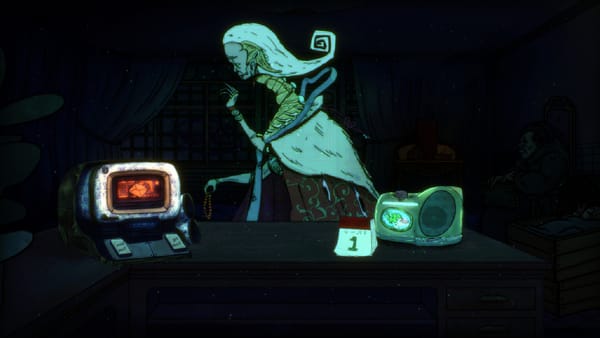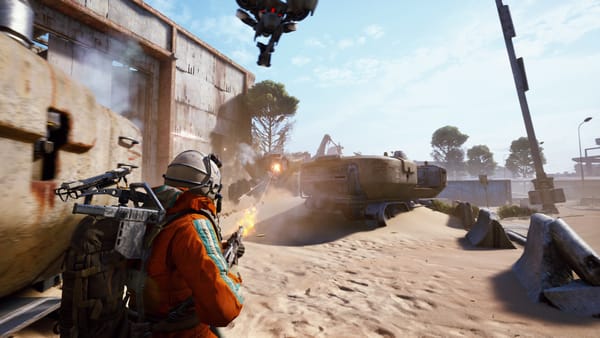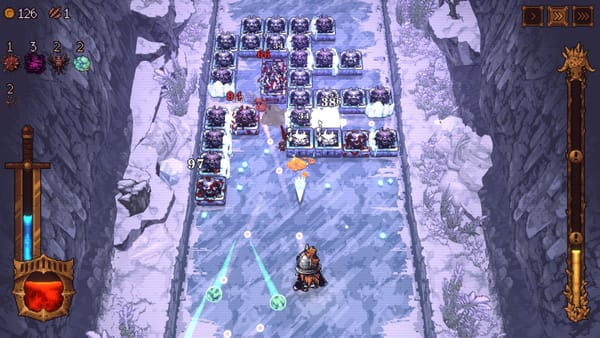How much room is there for optimism in games media?
Can you find silver linings in senseless layoffs and shutdowns?

My guest for this issue of Multiplier is James O’Connor. O’Connor is a freelance consultant, an award-winning critic, an accomplished narrative designer and the author behind this wonderful little book about Untitled Goose Game. He recently wrapped up a gig as a Game Development Executive at the South Australian Film Corporation. Prior to that, O’Connor was project narrative lead at Mighty Kingdom. These days, you can find him over on Bluesky.
Fergus: The games media space has always been somewhat-precarious but, even taking that into account, the last few years have been rough.
There have been countless rounds of layoffs, publication closures, the dominance of content mills like Valnet and - perhaps most upsettingly - the zombification of once-beloved outlets. Vice’s rebooted Waypoint, the new Escapist and whatever the new owner of GamesHub is up to all come to mind here.
Despite the trail that independent media like Aftermath, Remap and Second Wind seem to be blazing, I find it hard to escape the sense that games media looks to be in its slop era. The catalyst for wanting to chat with was that, in the face of all this bad news, I have a distinct memory of seeing you hedge in the opposite direction. That tendency toward optimism has stuck with me in the time since.
Given that you’ve been in the mix when it comes to games media for a lot longer than I have, I thought I’d dig a little deeper. How can you find a silver lining to these grim times?

James: Interestingly, even between you sending me this email and me replying to it there have been several developments in this space - like the launch of Skill Up's This Week in Videogames and the fundamental collapse of zombie Waypoint. We're a few weeks out from the launch of Endless Mode, too, the new gaming site from Paste.
I will say, though, that when I say that I am still optimistic - that I believe that good things can and will happen in spaces of games journalism, criticism, and blogging - a part of that is out of necessity. Sometimes, to get up in the morning, you need to believe that better things are possible, and that there are good days ahead. But that does not make any sense of optimism I scrounge up any less genuine.
The thing that I remain most consistently optimistic about is that there remains an audience for good writing about games. We see that in an ecosystem that is supporting multiple new independent outlets - not to the capacity they would like, of course, but change takes time, and I believe that people are getting more used to the idea that good work is still worth paying for. We're seeing boutique, indie-run magazines, books and journals doing well - look at the meteoric rise of Lost in Cult in the UK.
I know that things are not in good shape right now, fundamentally. But I suppose when I say I'm optimistic, what I really mean is that I don't think it's time to give up. I've expanded my business practices over the years, and taken on many different roles and jobs (including teaching, game development, and game funding), but somehow I've never stopped writing about games in all that time. At this point I have to hold onto some belief that it's all been worth it. Does that make sense?

Fergus: I think so. I sometimes find some solace by going the other direction with it and subscribing to more of a long-term view.
Big picture: people have been writing about games for a lot more years than the current crop of corporate media outlets has been around. Websites like Gamespot and IGN may have been the dominant business model for games media for a long time but history is longer still. While I can’t say for certain what might replace it, I remain confident that people will continue to write, record podcasts and produce videos about games and games culture.
Perhaps the reason I feel that way is that I grew up reading about games in local magazines like PC PowerPlay and wanting to write the things that I liked to read was what drove me to want to work in media. At the same time, writing about games is far from the only thing that I’ve done in the years since. A lot of the best opportunities I’ve had in my career have little and less to do with that side of things and, by most metrics, I probably write fewer words about games than I ever have.
And yet, I do still find the time and drive to write about games because I think that it continues to have worth and I suspect others feel the same way. Whether the old guard of the games media continues to survive as a shadow of its former glory, morphs into something different or flames out entirely, I have no doubt that the audience for thoughtful gaming coverage will persist because I am part of it and am not so arrogant to believe that I am utterly unique in having such an appetite.
The other thing that offers me some hope nowadays is that we aren’t just seeing the incoming wave of independent media stick around. We’re seeing these new outlets come into their own, set the conversation and show that success doesn’t have to mean chasing the latest AAA releases or doing the same old tired thing.

James: I've recently made a shift in my career, moving my focus back to freelancing. So far it has meant an awful lot of emails, considerable rejection, balancing well-paid work against poorly-paid, and - thankfully - quite a lot of invoicing. The market is tighter than it was before, and I'm benefiting from having gone into more traditional jobs for a while to gain new experiences and build up some savings.
I'm using my writing and analysis skills in different ways now, and trying to move more into consulting and narrative work. But games criticism, and other writing about games, has still been integral to my strategy, and I'm finding that - as has always been the case - the only real ways to succeed are to be dogged and agile.
I'm pitching a lot, I'm introducing myself often, and I'm trying to sink my teeth into bigger, juicier projects when the opportunities arise. I know on some level that "I am still finding some work" is not the same as "we should all be optimistic", and I have the benefit of a lot of experience (both writing and life) behind me.
I've seen shifting and changing trends, good periods and bad. One thing that worries me is that upcoming writers, journalists and critics have less access to mentorship than before, both in terms of formal programs and access to experienced, open editors. It is, I think, harder - maybe even less incentivised - to get better at this than it used to be.
I do wonder what impact that's going to have on the future of games journalism and criticism, and whether there will be many cases of "new" voices emerging in Australia, in particular. So I suppose as much as I make sure to maintain a level of optimism for my own career, I do have some concerns for the profession at large.




